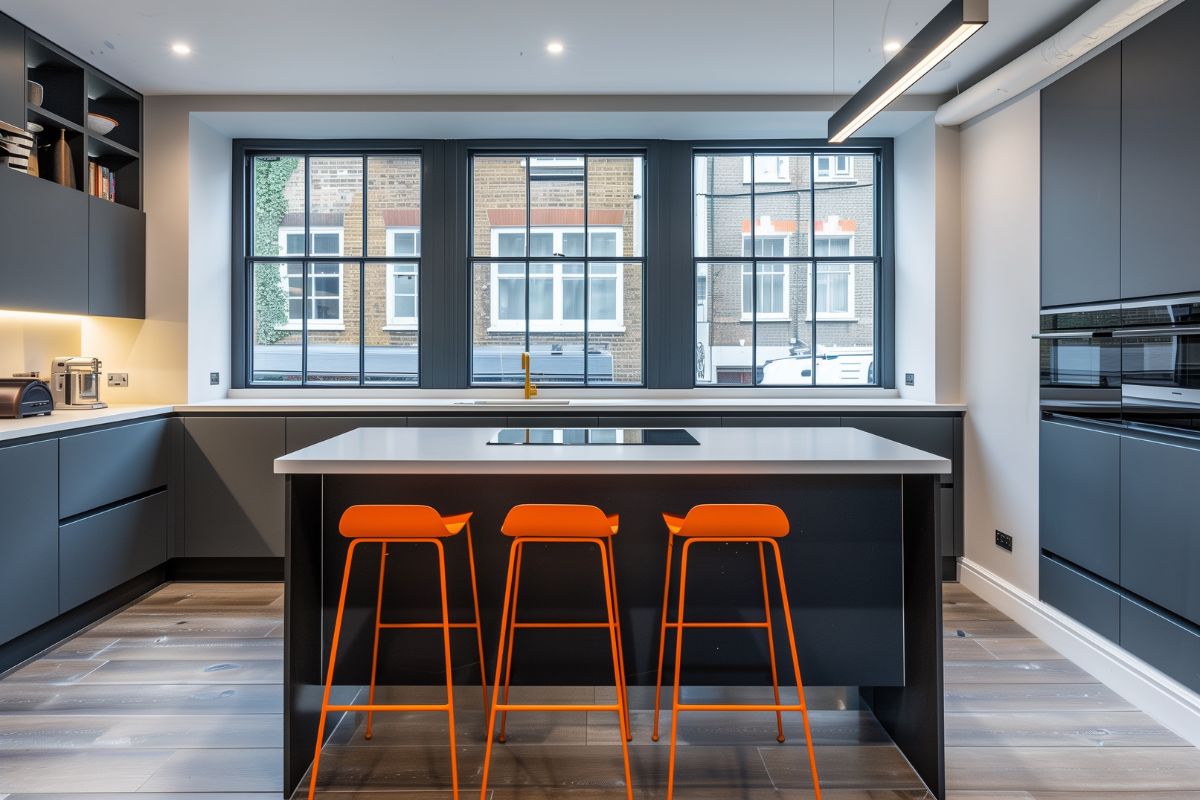
You don’t have to buy an entire hotel to get a stake in the hospitality industry. Boutique hotels and aparthotels are thriving business opportunities, delivering high profits for investors. The world loves them for their unique charm and tailored experience—attributes that allow for premium pricing, guest loyalty and high yields. However, these alternatives to traditional hotels come with equally distinct challenges. Whether your investment strategy takes you the small hotel route or down the road of a complete hotel conversion, we’ve got you covered.
WHAT DEFINES BOUTIQUE HOTELS AND APARTHOTELS?
Boutique hotels and aparthotels are part of a broader trend towards niche marketing in the hospitality industry. They cater to specific preferences and experiences beyond the standard hotel offering. Both types of accommodation often focus on design, comfort, and tailoring services to individual guest needs.
Boutique hotels are typically smaller than mainstream hotels. They focus on providing unique, personalised services and intimate environments that bring the local ambience to the interior space. These character hotels often feature distinctive themes or stylish designs that are visually striking and different from the standard corporate branding seen in larger chain hotels.
Aparthotels, on the other hand, blend the features of an apartment with the services of a hotel. Their design focuses on offering the comforts of home alongside the convenience and services of a hotel, such as housekeeping, reception, and even amenities like fitness centres and in-house or nearby restaurants. These spaces—a type of serviced accommodation—typically include kitchen facilities, living areas, and sometimes multiple bedrooms.
The primary difference between boutique- and aparthotels is their target market and the length of stay they cater to. We’ll get into the implications in more detail later, but for now, let’s pin down what sets them apart:
- Boutique hotels are geared towards travellers seeking a unique or luxurious experience during shorter stays. They emphasise aesthetics, atmosphere, and personalised service.
- Aparthotels are designed for longer stays, providing practical amenities like kitchens and living areas that allow guests to live more as they would in their homes, with the added benefit of hotel services. They’re often referred to as ‘serviced apartments’—although aparthotels may be considered a step up in the service level, the line is blurred. For practicality in this guide, we’ll refer to both in the same context.
THE APPEAL OF BOUTIQUE HOTELS & APARTHOTELS
Who chooses boutique hotels? These properties draw travellers seeking authenticity and personalised attention, generally high-end services paired with signature deco; they’re popular choices in urban and resort destinations. Character hotels are in demand for more than overnight accommodation—as opposed to mainstream hotels, boutique hotels are the travelling experience itself.
Now, aparthotels operate primarily in a different market and are designed for long-term stays. Their home-like amenities—from living rooms and fully equipped kitchens to laundry facilities and enhanced services— make them highly attractive to business travellers and families on extended trips or looking for temporary ‘housing’, for example, those relocating and interested in accommodation for weeks or even few months.
While extended stays create the bulk of the demand, there is also growing interest from other types of customers. Aparthotels are attracting shorter-term stays, in particular young travellers looking for the convenience of hotel services with the rewards of more space and self-sufficiency. This trend goes to show how the market is always evolving and why investors must stay up to date.
A report from The Association of Serviced Apartment Providers (ASAP) and global research firm Bonard, showed that, in 2022, 12% of the guest in aparthotels stayed between 7 and 29 days, and 11% between 30 to 89 nights; however, the majority leaned towards the shorter-term stay with 45% between 2 and 6 days and 25% for overnight stays.
An Independent Review of the Role and Value of Serviced Apartments in the UK, 2024
INVESTMENT OPPORTUNITIES IN APARTHOTELS AND BOUTIQUE HOTELS
The accommodation industry presents different alternatives appealing to various investment profiles. Take the contrast between private property rental models like Airbnb. Initially, AirBnB popularised the short-stay let model for property owners even with limited capital (as in sharing their family homes).
There are also more institutional avenues with limited strategic intervention, from shares in financial assets to HMO room investment and hotel room schemes. These models often involve a hands-off approach, where the investor has little to do with daily operations and management decisions. Depending on the investor’s strategy, this is a crucial consideration.
Let’s start with the larger picture. Aparthotels and boutique hotels present an entirely different type of investing. Both styles combine elements of traditional hotels with enhanced features designed for functionality or uniqueness. Both can be particularly advantageous for those looking for high returns.
On the money side, Boutique hotels, with distinct, more luxurious spaces, typically command premium pricing. Their uniqueness and personalised service can lead to higher guest loyalty and repeat business, both highly valued in the competitive hospitality market. On the other hand, aparthotels, with the longer-stay model, may benefit from a reduced turnover and steadier cash flow.
On strategy: Both types of property investments allow for strategic branding and marketing aligned with specific lifestyles and preferences. For investors, this is the chance to tap into niche markets. They can effectively leverage local cultural elements or cater to specific demographics like business travellers, digital nomads, or families needing longer-term accommodations. This flexibility not only has the potential to boost profitability but also mitigates risk by diversifying the guest base. Overall, investing in aparthotels and boutique hotels requires a comprehensive understanding of market dynamics, customer preferences, and effective property management to maximise returns. So, let’s zoom in.
MARKET CHALLENGES: THE OTHER SIDE OF NICHE HOTELS
As we know, the investment strategy can take different routes, from buying and running a small hotel (the more hands-on approach) to investing in hotel rooms (the more institutional way). Factors such as location and market demand are pivotal for the initial success and the long-term sustainability of the investment. But whichever combination you think of, it involves careful consideration from investors; aparthotels and boutique hotels are no exceptions.
Location challenges
Choosing the right location is one of the most critical decisions for the success of any property investment, especially in the hospitality sector. For boutique hotels and aparthotels, the challenges include a balancing act.
- Accessibility and Visibility: Properties must be easily accessible to guests. Poor accessibility or visibility can deter potential guests and negatively impact occupancy rates.
- Proximity to Attractions and Business Hubs: Being close to major tourist attractions, business districts, and transport hubs is crucial. However, such locations are often more expensive and can have high competition.
Regulatory considerations for Boutique- and aparthotels
These properties often involve complex regulatory environments, including compliance with local zoning laws, obtaining the appropriate licenses, and possibly applying for changes in use class if converting existing properties.
Use Classes for aparthotels and boutique hotels:
Properties for short-term lettings generally operate under the C1 Use Class, which refers to hotels or similar accommodations; however, you may also find them under the C3 Use Class (residential) and Sui Generis order. For instance, the results of ASAP’s research showed that 71% of aparthotels in their survey operated under class C1, while 26% fell under C3. If this is any indication of the broader market, the potential for non-institutional and smaller investors becomes clearer.
If you’re considering converting a property, be aware that relying on permitted development rights might not be an option, so it’s crucial to consult the local planning authority (LPA). They will determine if a letting activity makes a material change of use.
- For instance, turning apartments into a hotel involves a significant change in the building’s use. While an anticipated C5 Use Class for properties such as boutique hotels, Airbnb and serviced accommodation becomes official, a commonly used route is to change to C4 (HMO) or Sui Generis HMO use classes.You can expect this to require planning permission. Such developments can significantly impact the local area, from increased traffic to demands on local infrastructure.
- There’s another investment path —slightly off-topic but worth mentioning so you keep an eye out for updates. There’ve been indications that the government intends to relax the planning systems to allow the conversion from class C1 to C3, opening the possibility of turning a hotel into apartments under permitted development. As of now, converting from hotel to residential requires planning, yet it can still be a good prospect if you consider that these properties’ layouts and structural design might be close enough to make a smooth conversion.
Zoning Regulations for hotel-like properties:
Depending on the location, zoning laws may restrict the development of new hotel properties or the conversion of existing properties into hotels or aparthotels. Both types of properties must comply with hospitality regulations, but boutique hotels might face additional challenges if they are located in heritage buildings or culturally sensitive areas. Aparthotels might also need to adhere to residential standards in addition to hospitality regulations.
- Outside London: There are no specific national restrictions on the number of days you can let out your property on a short-term basis.
- In London: The rules are stricter. Letting residential properties for short-term stays exceeding 90 nights in a calendar year requires planning permission from the LPA. This rule is designed to balance the housing needs of long-term residents with the growing demand for short-term accommodation.
Again, local planning authorities have the final say. Always check to ensure compliance and avoid potential legal issues. If you have questions or need assistance navigating these requirements, feel free to reach out—we’re here to help!
Market shifts
Understanding how economic turns can affect these investments and adapting to market demand is crucial for the sustained success of boutique hotels and aparthotels. Here are three key market facts you must watch:
- Travel trends can shift rapidly; what is popular today might not be tomorrow. Boutique hotels, in particular, need to stay relevant and appealing to their target demographic, which may require frequent updates and renovations.
- The hospitality industry is susceptible to economic changes. Economic downturns can reduce travel frequency and budgets, impacting occupancy rates. The same applies for policy changes.
- The unique selling proposition of boutique hotels can be easily replicated by competitors, leading to a saturated market. Aparthotels face competition from other hotels and short-term rental properties like those offered on Airbnb.
Risks and costs
Besides the risk associated with the hospitality industry’s susceptibility to economic cycles and travel trends, the challenges include the high initial capital required for acquisition and renovations to meet specific standards.
High Initial Investment:
Boutique hotels and aparthotels require a significant upfront investment in property purchase, customisation, and branding, while the regulatory implications can delay projects and increase costs.
Boutique hotels often require a higher initial investment per room due to unique, high-quality designs and finishes. In contrast, aparthotels might involve a lower per-room cost but could require more extensive facilities to support more extended stays. Indeed, the scale depends on the size and location and how you (or any investor) approach the property portfolio strategy —such as opting to buy an up-and-running hotel rather than build or convert a property.
Operational Complexity:
Successfully running a boutique hotel or aparthotel requires high operational expertise, from customer service to property management. Investors need to either develop these skills themselves or hire experienced managers.
Operational challenges such as staffing, high-quality service delivery, and maintenance can also impact profitability. Boutique hotels, for instance, may face higher ongoing operational and maintenance costs due to their luxury services and interiors. Aparthotels, while possibly less demanding in daily luxury services, must manage longer stays, which may imply more wear and tear over time.
Maintaining Standards: Not surprisingly, customer satisfaction rules, especially in niche markets. To keep attracting guests, it’s crucial to maintain superior standards of quality and service, which can be costly.
Technological Advancements: Staying updated with technology, be it for booking systems, customer management, or in-room technology, is vital but can be a significant ongoing cost.
INVESTING IN HOTEL ROOMS: IS THE HANDS-OFF ROUTE FOR YOU?
Investing in individual hotel rooms, as opposed to entire properties. As briefly mentioned earlier, this investment model indeed involves a hands-off approach. Typically, the day-to-day operations and management decisions are handled by professional management companies. While this might seem to limit an investor’s control, it offers several key benefits:
Advantages of Investing in Hotel Rooms
- Lower Capital Outlay: The lower entry cost is one of the most significant advantages. Instead of purchasing an entire hotel, investors can buy one or several rooms within a hotel, which is considerably more affordable and allows for portfolio diversification.
- Professional Management: This investment’s hands-off nature is beneficial for those who prefer not to deal with the operational complexities of running a hotel. Management companies handle everything from marketing to maintenance and dealing with guests. This can be particularly advantageous for investors who do not have experience in hospitality management or who prefer passive investment opportunities.
- Consistent Returns: Managed hotel room investments often offer fixed returns based on room revenues. This can give investors a predictable income stream, making financial planning more straightforward. Moreover, these returns are typically higher than those from traditional residential rentals.
- Hassle-Free Maintenance: Since the hotel operator is responsible for upkeep, investors don’t have to worry about the day-to-day maintenance or emergencies that can come with property ownership.
- Potential for Capital Appreciation: Hotel rooms can gain value over time, primarily in high-demand areas like other real estate investments. With its robust tourism and international business traffic, the UK provides numerous locales where such investments can appreciate significantly, a trait that continues to draw the attention of international property investors.
APARTHOTELS VS BOUTIQUE HOTELS: DESIGN FOCUS FOR INVESTORS
There are significant incentives and considerations for investors eyeing the aparthotel and boutique hotel markets, and we can’t go without exploring what it means in terms of design. Let’s sum up the key design implications of these unique properties.
|
Requirements |
Boutique Hotels |
Aparthotels |
|
General Design |
Emphasis on unique, thematic, and aesthetic appeal. Often incorporates local art and culture to create distinctive and memorable environments. |
Functional design that combines residential comfort with hotel convenience. Focuses on practical layouts that include kitchens and living spaces. |
|
Scope of Work |
It can be extensive, depending on the theme. Each room may have a unique design, requiring custom fixtures and furnishings. |
Generally uniform in design across units to streamline operations and maintenance. The focus is on the efficiency and long-term durability of materials. |
|
Time of Renovation |
Potentially longer due to the bespoke nature of design elements and luxury finishes. |
Usually shorter, as designs are more standardised, but customisation for any residential features can extend timelines. |
|
Size of Property |
Typically, they are smaller than traditional hotels, creating a more intimate setting. There are usually fewer than 100 rooms. |
Although size can vary, these are often larger than boutique hotel rooms to accommodate additional living spaces and amenities like kitchens. |
|
Interior Design Considerations |
High importance on style, individuality, and luxury. Common areas and rooms are often designed with high-end materials and artwork. |
Functional and comfortable, with a focus on homely amenities. Includes kitchen appliances and furniture that support extended stays. |
|
Maintenance |
High maintenance due to custom decor and luxury elements may require special care. |
Lower maintenance compared to boutique hotels, designed for longer stays with durable and easy-to-maintain interiors. |
NEXT STEPS TO INVEST IN APARTHOTELS AND BOUTIQUE HOTELS
The charm of boutique hotels and the functionality of aparthotels lies in their ability to offer distinctive experiences that resonate with today’s travellers seeking more than just overnight accommodation. For investors, these properties present an opportunity to capitalise on a niche market with potential significant returns. However, success requires a deep understanding of the market dynamics, a robust operational strategy, and effective risk management.
Understanding the regulatory landscape is crucial to avoiding costly setbacks and moving your project forward smoothly. But before you make major moves, make sure you have expert advice on your side.
We can transform your property ideas into profitable assets. Our experienced HMO Architect team will help you achieve compliance and maximise your property’s potential. Have a project in mind? Let’s take it further. Reach out to discuss your investment strategy or book a free project discovery call today.
Ryan Windsor, Development Director and co-founder of HMO Architect, brings over 15 years of specialised experience in HMO development to the table. Having consulted on nearly 2,200 projects, Ryan is a highly seasoned HMO landlord with a vast and influential property network. He began his real estate journey at just 17, rapidly amassing a wealth of experience that sets him apart in the industry. Beyond his professional successes, Ryan is passionately dedicated to giving back, leading numerous charitable initiatives that make a meaningful impact on local communities.




